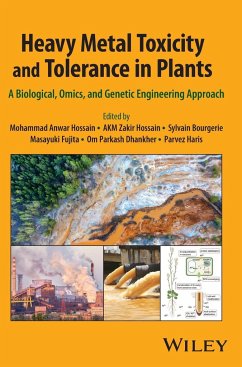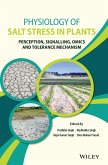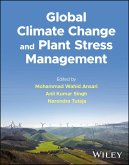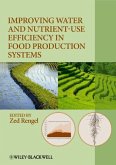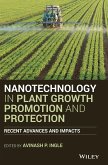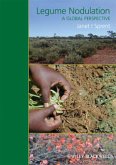Comprehensive resource detailing the molecular mechanisms underlying heavy metal toxicity and tolerance in plants
Heavy Metal Toxicity and Tolerance in Plants provides a comprehensive overview of the physiological, biochemical, and molecular basis of heavy metal tolerance and functional omics that allow for a deeper understanding of using heavy metal tolerance for deliberate manipulation of plants. Through the authors' unique approach, the text enables researchers to develop strategies to enhance metal toxicity and deficiency tolerance as well as crop productivity under stressful conditions, in order to better utilize natural resources to ensure future food security.
The text presents the basic knowledge of plant heavy metal/metalloid tolerance using modern approaches, including omics, nanotechnology, and genetic manipulation, and covers molecular breeding, genetic engineering, and approaches for high yield and quality under metal toxicity or deficiency stress conditions.
With a collection of 26 chapters contributed by the leading experts in the fields surrounding heavy metal and metalloids toxicity and tolerance in crop plants, Heavy Metal Toxicity and Tolerance in Plants includes further information on:
_ Advanced techniques in omics research in relation to heavy metals/metalloids toxicity and tolerance
_ Heavy metals/metalloids in food crops and their implications for human health
_ Molecular mechanisms of heavy metals/metalloids toxicity and tolerance in plants
_ Molecular breeding approaches for reducing heavy metals load in the edible plant parts
_ Hormonal regulation of heavy metals toxicity and tolerance
_ Applications of nanotechnology for improving heavy metals stress tolerance
_ Genetic engineering for heavy metals/metalloids stress tolerance in plants
With comprehensive coverage of the subject, Heavy Metal Toxicity and Tolerance in Plants is an essential reference for researchers working on developing plants tolerant to metals/metalloids stress and effective strategies for reducing the risk of health hazards.
Hinweis: Dieser Artikel kann nur an eine deutsche Lieferadresse ausgeliefert werden.
Heavy Metal Toxicity and Tolerance in Plants provides a comprehensive overview of the physiological, biochemical, and molecular basis of heavy metal tolerance and functional omics that allow for a deeper understanding of using heavy metal tolerance for deliberate manipulation of plants. Through the authors' unique approach, the text enables researchers to develop strategies to enhance metal toxicity and deficiency tolerance as well as crop productivity under stressful conditions, in order to better utilize natural resources to ensure future food security.
The text presents the basic knowledge of plant heavy metal/metalloid tolerance using modern approaches, including omics, nanotechnology, and genetic manipulation, and covers molecular breeding, genetic engineering, and approaches for high yield and quality under metal toxicity or deficiency stress conditions.
With a collection of 26 chapters contributed by the leading experts in the fields surrounding heavy metal and metalloids toxicity and tolerance in crop plants, Heavy Metal Toxicity and Tolerance in Plants includes further information on:
_ Advanced techniques in omics research in relation to heavy metals/metalloids toxicity and tolerance
_ Heavy metals/metalloids in food crops and their implications for human health
_ Molecular mechanisms of heavy metals/metalloids toxicity and tolerance in plants
_ Molecular breeding approaches for reducing heavy metals load in the edible plant parts
_ Hormonal regulation of heavy metals toxicity and tolerance
_ Applications of nanotechnology for improving heavy metals stress tolerance
_ Genetic engineering for heavy metals/metalloids stress tolerance in plants
With comprehensive coverage of the subject, Heavy Metal Toxicity and Tolerance in Plants is an essential reference for researchers working on developing plants tolerant to metals/metalloids stress and effective strategies for reducing the risk of health hazards.
Hinweis: Dieser Artikel kann nur an eine deutsche Lieferadresse ausgeliefert werden.

